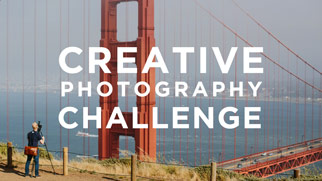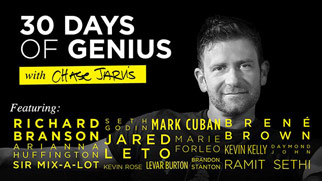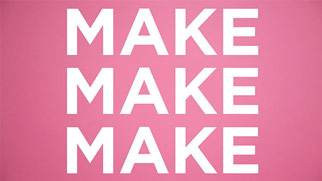There’s a saying that goes: Plan for Success, Learn from Failure
While I’d anticipated a demand for frequent updates of Best Camera if we succeeded—I’d baked it into the contract—what I had not anticipated was the possibility of such incredibly rapid success.
I’d structured an agreement with the developers based on the idea that the app would take a while to achieve liftoff. The revenue split favored me once their initial investment was repaid. That was my failure of imagination. As a result, I hadn’t given any thought to the possibility of overnight success removing most of their financial incentive to keep working on it.
As Best Camera stagnated, the online reaction went from the occasional tweeted tirade from a passionate fan to literally thousands of people openly begging for an update. The cold reality was that I couldn’t give it to them. I had no access to the code. I couldn’t migrate it anywhere else. I couldn’t access the App Store to see download data or revenue. I couldn’t even update the marketing copy. I was locked out.
There I was with an App of the Year award, my vision for the future of mobile photography only partially realized, a huge and passionate user base, and offers to fund the app or even buy it outright for never-work-again amounts of money, and I was dead in the water. Worse, I was grappling with paralyzing shame for ending up this way. I’d failed.
To strip failure of its real emotional consequence is to scrub the concepts of grit and resilience of the very qualities that make them both so important: toughness, doggedness, and perseverance. -Brené Brown Share on XBy the time Facebook bought Instagram, some time had passed. Despite the frustration and sense of loss, I felt strangely calm, almost peaceful. I silenced the torrent of notifications on my phone and sat quietly, letting it all sink in for a minute. I knew I was facing my biggest professional failure—a billion dollars’ worth.
More than missing out on a big payment, I was missing the joy I would have felt in seeing my work used by damn near every person with a phone. I failed in several important ways with Best Camera. It was brutal. It hurt. Some days, even ten years later, it still does. Your creative failures will hurt, too. If you’re willing to sit with them, however, you’ll start to see things a little differently. Time passes. Wounds heal, if you allow yourself to feel them. My dear friend Brené Brown put it best: “To strip failure of its real emotional consequence is to scrub the concepts of grit and resilience of the very qualities that make them both so important: toughness, doggedness, and perseverance.”
The experience taught me so many critical things I couldn’t have learned any other way. Those lessons were invaluable when I was launching and growing CreativeLive, which has many times more users than Best Camera ever did.
Looking back now, here are four lessons I learned from Failure:
Failure is Inevitable: We must show up and embrace adversity anyway
We all know anything worth doing will have some tough spots. That alone is enough to make even the best of us stop before starting. And we also know there’s never a point where there’s zero adversity. So either way we need to take a deep breath and dive in.
Actively change your mindset to accept that failure is part of the process. It’s actually required to produce anything good. If we can accept failure as a stepping stone to our success we can avoid getting swept downstream by it.
The first time we do anything, we’re bound to screw it up. Yet in the stumbling we develop the necessary skill to manage success when it comes later on.
Start Easy
Our best work, the work that’s worth doing, requires some sort of risk. That is part of what can make it so scary. It does us no good to tread lightly. If you’re going for a dip in a cold-plunge pool you don’t slink in. That’s miserable. Leap in with a shout of joy.
If the idea of starting seems a bit too scary to take on. Start with low-stake creative challenges that are just outside your comfort zone. Think small goals, small risks. Something that feels real when you succeed, and still fun even if you stumble.
Sometimes mindset tricks can help. Assume you will suck it. Assume it won’t be good. But know you’re doing it to try, play, and learn. When you give yourself permission to suck, you open the door to just starting, which is all you need to get unstuck.
Every failure contains the seeds of a future victory
We may never know where the road will take us, but looking backwards we can see how those steps brought us to where we are today. Making us and forming us along the way.
Creating something that has real risk requires sitting with fear, coming to terms with self-doubt. You’re going to wonder whether you’ve got what it takes, whether you can make the next project work. That’s inevitable. The easiest thing in the world to do with that doubt is choose an extreme: 1) blind faith that everything will work out or 2) relentless doubt that it won’t. In other words, other people can turn their ideas into a reality, but I have no agency over my own life.
Each of us has to find the middle ground between faith and doubt and learn to get comfortable there.
Multiple factors create success in any creative pursuit. That’s reality. We all want to be discovered and judged on our own, unique merits, but there are always other elements that play a role. It’s almost never just about the work itself. Good work is the cost of entry, but breaking through depends on everything from people skills and positioning to serendipity and promotion. Instead of lamenting this, embrace it. Step back and consider all the factors that have played a role in the careers of those you seek to emulate. How can you adapt them to create your own approach? This simple shift in mindset may be just the advantage you need to elevate your own game.
Embrace the Suck
Launching a major creative idea or shifting the status quo is anything but “easy”. It will feel like pushing rocks uphill. But that’s why it’s called work.
You’ve got to practice and stand in the not-knowing and play through the parts where you will suck. If you can laugh at your mistakes first, whoever laughs at you will be late to the party.
Comparing yourself to others just makes you glutton for punishment. Even more, you’re judging yourself on the wrong standard. We are not the voices in our heads. Stop listening to the ones in your and get back to work.
Looking back at the Best Camera app, I learned how to build a company with aligned incentives, where we work rapidly and iteratively to improve the product based on what the community wants and needs. I learned about the dynamics of Silicon Valley and venture capital. And I learned that technically owning your code and intellectual property isn’t enough; you need to be able to put your hands on it. Though I couldn’t have known that our very first CreativeLive class would draw 50,000 people, this time I’d anticipated the possibility, and I was ready to ride the wave.
Plan for Success, Learn from Failure.
Enjoy!



























